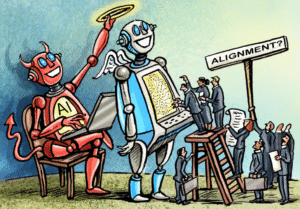According to Wikipedia, dreams are a succession of images, ideas, emotions, and sensations that usually occur involuntarily in the mind during certain stages of sleep. Humans spend about two hours dreaming per night, and each dream lasts around 5–20 minutes, although the dreamer may perceive the dream as being much longer.
My wife and I often share these events, searching for meaning, and are rarely able to explain them. One of the most frequent and upsetting nightmares we both have is being at college and forgetting where our next class is, knowing there will be a test that day for which we are unprepared.
Our dog had dreams … I know … because he would move his paws as he was running and would grimace his face at times expressing some level of angst.
All these dreams are innocent parts of life.
What is not so innocent is when the dreams of a few are spread as predictions of the future to burnish their brand or lead others to believe they are onto something special. In the Old Testament, we called these people prophets. Today’s dreamers seem more interested in profits. Many are dreaming of hydrogen, fuel cells, fusion, and more. Something is interesting in all these dreams … but they are mirages of the future, not visions of it.
Perhaps it is natural that people dream of flying cars … like the Jetsons … after all, wouldn’t it be nice to fly from point-to-point rather than battle it out on what we call freeways? Take a look at what Cadilac is dreaming about https://www.wsj.com/lifestyle/travel/road-trips-self-driving-cars-ad501e2d?st=cWmWhy&reflink=desktopwebshare_permalink and tell me this is reality anytime soon. I drive a Tesla with self-driving features, and I will not use them.
Our Lexus has several built-in features that help keep you in your lane, alert you to potential blind spots, and detect when you may be distracted while driving. Some of these are very helpful. Others are not. And what I now observe is that the danger on the road is from idiots coming from behind you at excessive speed playing slalom cutting in and out to gain a few feet in traffic. We have come so close to accidents due to them more than anything else.
Then, there are the roads themselves which are falling into disrepair with potholes that can swallow your car tires and destroy your suspension. My wife, Susan, can chalk one $5,000 car repair to our Tesla hitting one breaking our rear axle. That was two years ago, and we have reported it multiple times to the to the county, and it is still unrepaired.
I am not trying to ignore change. I embrace it. But I do sneer at those who pretend that change is easy and forthcoming in the next year or so to polish their corporate reputation, giving shareholders hope for a better day.
It does help to look back at how quickly some changes have occurred. Our modern cars are more comfortable, fuel efficient, and capable. I do remember that there was a time when speeds of over 30 mph were considered incomprehensible.
Once again, history is helpful. On May 21, 1901, Connecticut became the first state to pass a law regulating motor vehicles, limiting their speed to 12 mph in cities and 15 mph on country roads. Speed limits had been set earlier in the United States for non-motorized vehicles: In 1652, the colony of New Amsterdam (now New York) issued a decree stating that “No wagons, carts or sleighs shall be run, rode, or driven at a gallop” at the risk of incurring a fine starting at “two pounds Flemish,” or about $150 in today’s currency.
In 1899, the New York City cabdriver Jacob German was arrested for driving his electric taxi at 12 mph. The path to Connecticut’s 1901 speed limit legislation began when Representative Robert Woodruff submitted a bill to the State General Assembly proposing a motor-vehicle speed limit of 8 mph within city limits and 12 mph outside. The law passed in May 1901 specified higher speed limits but required drivers to slow down upon approaching or passing horse-drawn vehicles and come to a complete stop if necessary to avoid scaring the animals.
Did you notice that it was an electric vehicle? My biggest concern with our Tesla is not scaring an animal but rather running into a pedestrian who can’t hear my car.
Dream on Cadilac …




